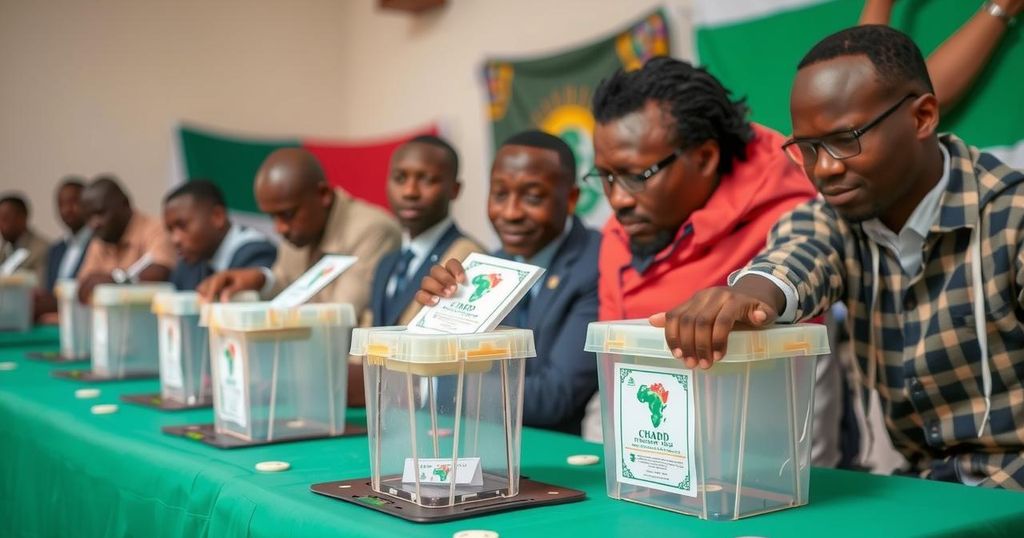Voting is under way in Chad’s first parliamentary election in 13 years amid a boycott by opposition parties, alleging pre-determined outcomes favoring the ruling government. Low turnout has been reported, particularly in the capital, despite claims of high participation from military personnel. The election is framed by the government as a critical step toward democracy, amidst allegations of electoral fraud and ongoing security challenges.
Voting has commenced in Chad’s first parliamentary election in 13 years, a crucial event the government touts as a step towards democratic governance following military rule. This election allows voters to elect a new parliament, provincial assemblies, and local councils in one of the world’s most impoverished nations. However, significant opposition has arisen with calls for a boycott, leading to low voter turnout, particularly in the capital, N’Djamena.
The opposition parties, which represent a substantial political voice in Chad, have urged citizens to abstain from participating in what they perceive as a pre-determined electoral outcome favoring the ruling government. President Mahamat Idriss Deby Itno, who gained power through military means in 2021, is facing allegations of electoral fraud. Despite the opposition’s calls for boycott, supporters of the president remain optimistic, with Deby himself encouraging voter participation, terming this day historic.
Concerns about the integrity of the electoral process have surfaced, with the opposition claiming that results have already been manipulated. The electoral agency initially reported a high turnout among military personnel and nomadic voters, which contrasts sharply with the experiences shared by citizens on the ground who express a desire for real change and improvement in living conditions. Amid increasing violence from groups such as Boko Haram and tensions related to geopolitical influences, this election is pivotal for Chad’s future.
Chadian authorities present the election as a finale to the transition from military governance to democracy, stating that it carries significant local implications. As the day unfolds, the international community watches closely, with approximately 100 foreign observers overseeing the electoral process, amidst serious allegations of impending electoral malpractice being raised by the opposition.
As the electoral landscape evolves, the outcome of this parliamentary vote could significantly influence Chad’s political stability and trajectory towards democracy, particularly in light of its historical context following decades of autocratic rule. The government faces the dual challenges of addressing local needs while ensuring a familiar grip on power amidst advocacy for true democratic reform.
Chad has experienced prolonged military rule, particularly after the death of former President Idriss Deby in 2021. This marks the first parliamentary election in over a decade, aiming to establish a governing body elected by the populace. However, many opposition parties have disputed the legitimacy of this electoral process, claiming that it is not a fair representation of the will of the people. This election takes place within a backdrop of economic hardship, security threats from groups like Boko Haram, and climate change impacts that disproportionately affect diverse communities, including nomadic populations.
The parliamentary elections in Chad represent a crucial opportunity for the nation to shift towards a more democratic governance structure following years of military control. However, the boycott by opposition groups and concerns about electoral fraud raise significant doubts about the legitimacy and transparency of the electoral process. The reaction of the international community and the credibility of the electoral outcomes will play vital roles in determining Chad’s future political climate and development trajectory.
Original Source: www.aljazeera.com






